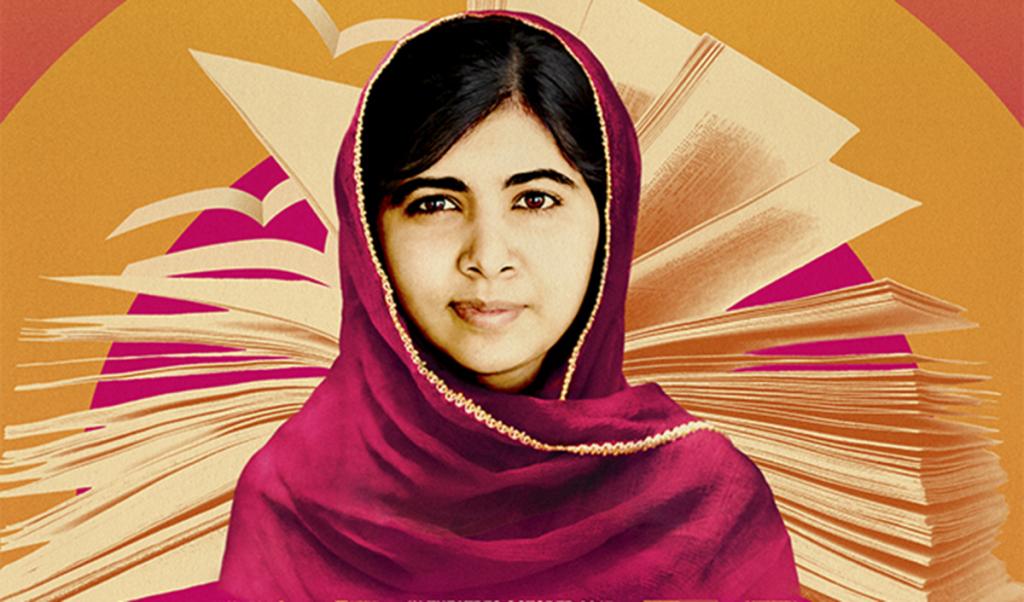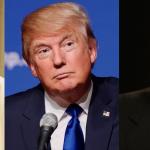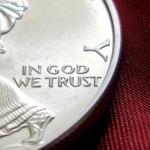I know the title of this post probably sounds like over the top hyperbole, but it’s not.
I really do believe every American needs to see He Named Me Malala.
Not because it’s the greatest documentary of all time. It’s not. Don’t get me wrong. It’s a really good film that I thoroughly enjoyed and may have even found myself tearing up over a time or two, but that’s not why I think everyone in America needs to watch the story of Malala Yousafzai.
It’s the current political climate in our country – and ever growing support for the man (and his ideology) leading the race for the Republican presidential nomination – that leads me to make such an audacious claim.
The animosity towards Muslims in the United States has reached a fevered pitch. Not since the days of Jim Crow and Japanese interment camps have we witnessed this sort of targeted and sanctified bigotry. In the name of safety, security, and “an overabundance of caution,” Muslim refugees are denied asylum and Muslim citizens here at home are ostracized and harassed while calls for their constant surveillance are made by politicians and voters alike.
According to the narrative being peddled across the land, ISIS is the purest form of Islam or at least it’s pretty darn close. No amount of rebuttal from the more than a billion Muslims who despise ISIS has made even a dent in the mind of almost exclusively conservative white Americans who have convinced themselves that either they know Islam better than its practitioners or that there is a giant conspiracy amongst to world’s Muslims to hide their true and unbridled love for ISIS.
In the midst of this unrelated campaign of hate from both the anti-Muslim crown and those who have hijacked Islam for their own evil purposes, stands Malala Yousafzi.
Islam, we are told, is a religion of violence and yet here is this teenager named Malala. A devout Muslim and winner of the Nobel Peace Prize.
To say Malala Yousafzi is a remarkable woman would an absurd understatement. This is a women who was shot in the face by the Taliban on her way to school because she was going to school. She wasn’t a bystander in some random act of terror. She was targeted for speaking out against the Taliban’s oppressive rule and, in particular, their prohibition against the education of women.
If they were lucky enough to survive a gunshot to the head by the Taliban, most people would understandably go out of their way to avoid further stoking the wrath of their unholy assailant.
But not Malala.
If anything, she spoke out even more fiercely after her attack, taking a defiant stand against the pervasion of Islam and for the education of women.
It’s this incredible story that is the focus of He Named Me Malala.
The film gives a glimpse into her world, her family life, and the profound influence her equally amazing father has had on her. He’s a man who founded his own school and, despite a stammer, dedicated his life to speaking out against the Taliban because, in his words, “if I don’t speak I will be the most sinful, the most guilty man in this world.”
But for all his obvious influence on her life, Malala is clear, “My father only gave me the name Malala. He didn’t make me Malala. I chose this life. It wasn’t forced upon me.”
Together, they’re like a modern day Moses and Joseph, for though the Taliban intended to harm them both, ” God intended it for good to accomplish what is now being done, the saving of many lives.”
But as awe-inspiring as they both are, the documentary thankfully never turns into a hagiography. It goes without saying the films highlights Malala far-beyond-her-years wisdom and maturity, to say nothing of her amazing courage. Not only did she stand up to the Taliban, but she’s also personally confronted Obama – in the White House – about how drone strikes fuel the rise of groups like the Taliban and publicly called out the Nigerian president for his weak response to Boko Haram, boldly declaring, “These are your people, your country’s people, and they have elected you. It’s your duty to respond, your responsibility to listen to your people’s voices.” But the film also goes out of his way to remind us that for all her amazing accomplishments, Malala is still very much a teenager who plays games with her family, roughhouses with her brothers, worries about friendships, giggles over cute boys, and jokingly autographed her own biography with the inscription “Dear Malala, Well done. Keep it up the good work. – Malala”
But what really stuck out to me and what convinces me this film desperately needs to be seen by all Americans this election season is the way in which Malala’s faith serves as the driving force in her life and her quest for equality and peace.
For Malala, “Islam is about decency humanity and forgiveness,” which is, in part, why she believes “God has sent us to the world to see how good we’ll live.” It’s this foundation of faith that fuels her with an inspiring amount of grace and peace. When a dumbfounded interviewer asks, “All this time, you’ve never felt angry [about the attack]?” Malala replies, “No. Not even as small as an atom. Or maybe a nucleus of an atom. Or maybe a proton. Or maybe a quark.”
[Side note: I really love her nerdy physics response. Oh, and by the way, among her favorite books? A Brief History of Time by Stephen Hawking. This kid is smart. Shocking, I know.]As a Christian, it’s hard not to see echoes of Jesus in Malala and it’s also hard not to think that if Malala was a Christian, she would be universally hailed as a hero of faith throughout the Church in America, instead of largely and conspicuously ignored because she’s a Muslim. That’s not to say there aren’t any American Christians who admire Malala’s courage and support her efforts to education young women. There most certainly are, but anti-Muslim propaganda has sadly become almost as deeply ingrained in the American Church as it is in the rest of the populous. Combine that with the huge swaths of American Christianity – both Protestant and Catholic – who sanctify the marginalization of women and a peace loving Muslim girl who fiercely advocates for the equality of women is just too awkward a figure to be admired and embraced by a whole lot of American Christians.
But that’s exactly why we all need to see this film whether we’re Christian or not.
Malala’s story stands as an important and powerful counter-narrative to the insidious myth that Islam is a religions of hate and it’s followers, all violent terrorists. As both she and her father (to say nothing of the countless Muslims around the world saying the same thing) point out, groups like the Taliban and ISIS are “cruel people who are misusing the name of Islam. They are the enemies of Islam.” Or as Malala’s father describes her attack, “Who was the person that shot Malala? It was not a person, it was an ideology.” But it is, perhaps not surprisingly, Malala who best sums up the difference between the Taliban and true Islam, “They were not about faith. They were about power.”
It’s this issue of power dynamics in Malala’s story that also forces us to confront the reality that for all the gains they’ve made in the past century, women are still often treated like second class citizens in this country, while around the world, it’s even worse.
As Malala declares like a punch to the gut, “I tell my story not because it is unique, but because it is not.”
The American Church has a history of rallying around certain books or films we think capture the heart of the Christian faith. Some churches buy up cases and cases of whatever the book of the day is to distribute among their members and their neighbors in hopes of inspiring them to live more like Jesus. While other churches host screenings of whatever faith film is en vogue in hopes of doing the same.
We should add He Named Me Malala to this collection of inspiring stories of faith. I know Malala is Muslim, but I can’t think of a better Christ-like example for the Church to embrace, especially during an election season when Christ’ unqualified call to “love thy neighbor” has become anathema for countless people who claim Jesus as their savior.
We stand on the verge of having a hate-mongering reality TV star as our next president.
A documentary about a peace loving Muslim girl on the other side of the world probably won’t turn the election, but it’s a beautiful, powerful, and much needed counter narrative to the vile rhetoric spewing from the mouth of Donald Trump and his ilk.
Yes, National Geographic was kind enough to send me a screener to check out this fantastic film, but I was planning on watching it anyway when it airs – for free and commercial free – on the National Geographic Channel this coming Monday, February 29th at 8pm.
[And no, I didn’t get paid for that plug. I was sincerely planning on watching it.]Anyway, do yourself a favor and make sure you watch it when it airs next Monday.
In the meantime, check out the trailer below to get a glimpse of why I really do believe this is a film every American needs to see.













